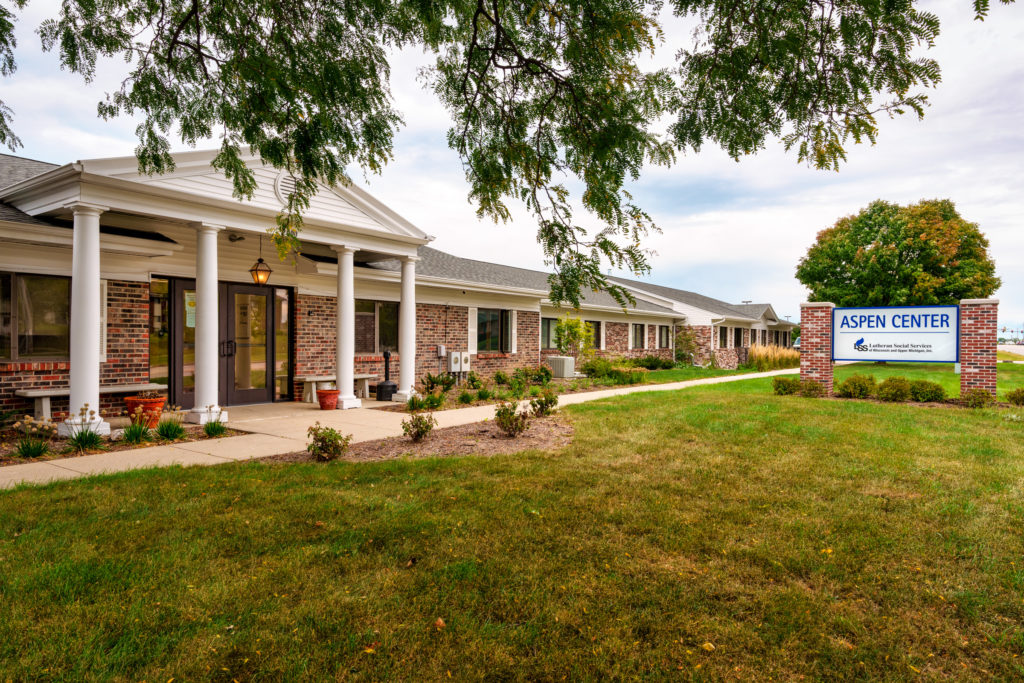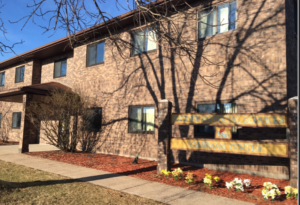Adult Residential Substance Use Disorder and Mental Health Services

Addiction Treatment
We provide addiction treatment services specifically designed to help people experience lasting recovery and a newly improved life.
Our addiction treatment services provide support along a continuum of care, depending on what clients need to be successful on their recovery journey.
- Outpatient treatment
- Residential treatment
- Gambling addiction services
Residential inpatient addiction treatment
We provide residential treatment services for those in need of more intense services and a residential setting in their early stage of recovery. Our counselors help clients improve their lives using evidence-based practices including cognitive behavioral therapy, motivational interviewing techniques, trauma-informed care, social learning theory and gender-specific services. We offer residential addiction services to serve as a bridge for recovery, returning to work and reconnecting with family.
Addiction treatment therapies matched to individual needs
Length of stay at a Residential Treatment facility is based on the needs of the client. Professional staff engage participants in a variety of activities, including multiple group sessions each day, individual therapy sessions, family services, educational sessions and specialty services. The treatment programs focus on each individual and address his or her addictive processes. The goal of each program is to explore a wide variety of strategies to help people find their own pathway to recovery. Our core treatment philosophy is based on a partnership with the individuals we serve who are seeking recovery from addiction.
LSS Aspen Center
2000 W. Bluemound Road | 262-330-8770
LSS Aspen Center is a community-based residential care (CBRF) 34-bed facility in Waukesha County offering affordable comprehensive addiction treatment for men.
LSS Aspen Center, situated in Waukesha WI, has been providing residential Substance Use Disorder services since 2020. Aspen Center provides DHS 75 licensed Medically Monitored Treatment as well as Transitional Residential Treatment services for men seeking recovery and change. This facility was designed to fill a growing need for affordable, high-quality licensed addiction treatment services in eastern and southeastern Wisconsin.
With a capacity of 34, over 150 individuals seeking recovery and change are served annually. The average length of stay for Medically Monitored Treatment is 1-2 months, and Transitional Residential Treatment services can generally range from 1 – 3 months. The Length of stay depends on the needs and progress of each individual.
Take a look inside LSS Aspen Center
Aspen Center utilizes evidence-based practices and modalities to address the needs of individuals seeking recovery, in a safe environment with an array of services.
- Individual and group counseling
- Family education and counseling
- Didactic/educational groups to increase learning about not only addiction, but more importantly about the steps to establish and maintain recovery
- In-house recovery support groups
- Curriculum based services with an emphasis on Cognitive Behavioral Therapy
- Feedback Informed Treatment (SAMSHA Evidence Based legacy model)
- Recreational activities including a large outdoor area with walking path, basketball, and more, as well as indoor recreational areas
- 24/7 awake staff
Aspen Center contracts with a variety of County DHS units, and also accepts Medicaid or self-payment.
Getting Started: Referral
Aspen Center accepts Medicaid, individual self-pay, and County referrals. Please download the referral form here.
If you or someone you love needs help, please reach out via email, or call Aspen Center at 262-330-8770.

LSS Fahrman Center
LSS Fahrman Center has been providing residential Substance Use Disorder Services in the Chippewa Valley for nearly 50 years, and since 1987 at its current location. Fahrman Center offers Medically Monitored and Transitional Residential services for men and women state-wide, with the majority of people seeking services coming from western and central Wisconsin. Situated on the southwestern side of Eau Claire at 3136 Craig Road, Fahrman Center is close to UW-Eau Claire, a variety of employment options for residents in Transitional Residential Treatment, motels and dining establishments, and Highway 94.
Fahrman Center has 42 beds; physical space, as well as services, are gender specific, with security between the women’s and the men’s living areas. Currently, over 300 individuals seeking recovery and change are served annually. The average length of stay for Medically Monitored Treatment is 21 days, and Transitional Residential Treatment services can generally range from 1 – 3 months depending on individual needs.
With its long history, Fahrman Center has continuously utilized evidence-based practices and modalities to address current needs of individuals seeking recovery.
- Feedback Informed Treatment (SAMSHA Evidence Based legacy model)
- Individual and group counseling
- Family education and counseling
- Didactic/educational groups to increase learning about not only addiction, but more importantly about the steps to establish and maintain recovery
- In-house recovery support groups (all virtual during the pandemic so not sure what you’d write about that)
- Gender Specific groups and linkages to Trauma Recovery and Empowerment Model services (TREM)
- Services to address co-occurring disorders
- Employment assistance services
- Recreational activities including a large outdoor area with walking path, basketball, horseshoes and more, as well as indoor recreational areas
- 24/7 awake staff
- Assistance with housing resources and linkages to continuing education at the nearby university and vocational/technical college, as well as services to provide GED/HSED completion
- Fahrman Center accepts Medicaid, individual self-pay, and County referrals.
If you or someone you love needs help, please reach out via email, or call Fahrman Center at 715-835-9110.
LSS Affinity House
LSS Affinity House is an 18-bed Community Based Adult Residential Facility, providing treatment for Substance Use Disorder for women. All referrals are from the Wisconsin Department of Community Corrections. Well-trained, experienced staff members provide both MMT residential treatment and Transitional residential treatment, as well as 24/7/365 awake supervision of the residents.
Location: Eau Claire, WI 54703
Phone: 715-833-0436
LSS BART (Barron Area Residential Treatment)
LSS BART (Barron Area Residential Treatment) is an 8-bed Community Based Adult Residential Facility for men, providing treatment for Substance Use Disorder. All referrals are from the Wisconsin Department of Community Corrections. Well-trained, experienced staff members provide MMT as well as 24/7/365 awake supervision of the residents.
Location: Barronett, WI 54813
Phone: 715-671-0331
LSS Deep River
LSS Deep River is a 24-bed Community Based Adult Residential Facility, providing treatment for Substance Use Disorder. All referrals are from the Wisconsin Department of Community Corrections. Well-trained, experienced staff members provide both services as well as 24/7/365 awake supervision of the residents.
Location: Neillsville, WI 54456
Phone: 715-819-1339
LSS Eastwood Crisis
LSS Eastwood Crisis serves eight adult men and women with mental health issues who are experiencing a crisis from any of life’s difficult circumstances, such as loss of housing, medication changes, suicidal ideation, and grief or trauma. Staff provide support in medication management, independent-living skills, interactive groups and 24-hour supervision. Eastwood Crisis has a range of stay between 1 week to 3 months as determined by resident and care team.
Location: Appleton, WI 54915
Phone: 920-830-3376
LSS Exodus House
LSS Exodus House is a 12-bed Community Based Adult Residential Facility for men, providing treatment for Substance Use Disorder. All referrals are from the Wisconsin Department of Community Corrections. Well-trained, experienced staff members provide both services as well as 24/7/365 awake supervision of the residents.
Location: Hudson, WI 54016
Phone: 715-386-3015
LSS Grandstone
LSS Grandstone serves eight adult men and women who have mental health issues. LSS staff members provide support in medication management, independent-living skills, interactive groups and 24-hour supervision. Grandstone is a transitional program where the residents have a range of stay between 3-12 months as determined by resident and care team. Grandstone helps individuals get the support they need to live more independently in the community.
Location: Appleton, WI 54911
Phone: 920-730-1028
LSS Preble House
LSS Preble House serves eight adult men and women with mental health issues. LSS staff members provide support in medication management, independent-living skills, interactive groups and 24-hour supervision. Preble House is a transitional program where the residents have a range of stay between 3-12 months as determined by resident and care team. Preble House helps individuals get the support they need to live more independently in the community.
Location: Green Bay, WI 54311
Phone: 920-465-9977
Substance Use Disorder programs serve individuals referred by the Wisconsin Department of Community Corrections. Individuals on Department of Corrections Supervision (Probation) should speak with their agent of record and/or probation officer.
Resources
LSS Visitation Policy - Residential Facilities
Please review this policy prior to your visit. Please do not visit if you are ill.
View pdf